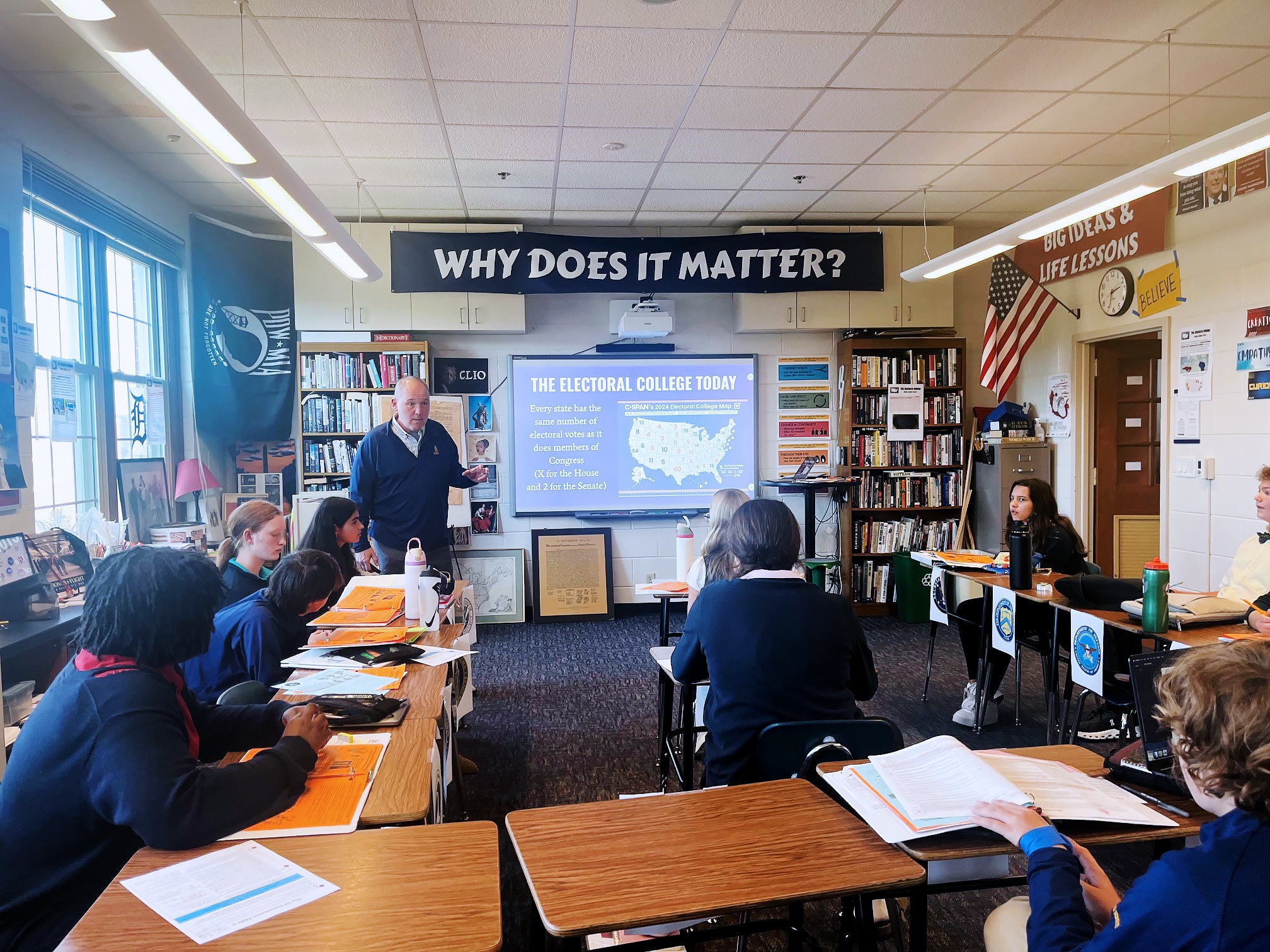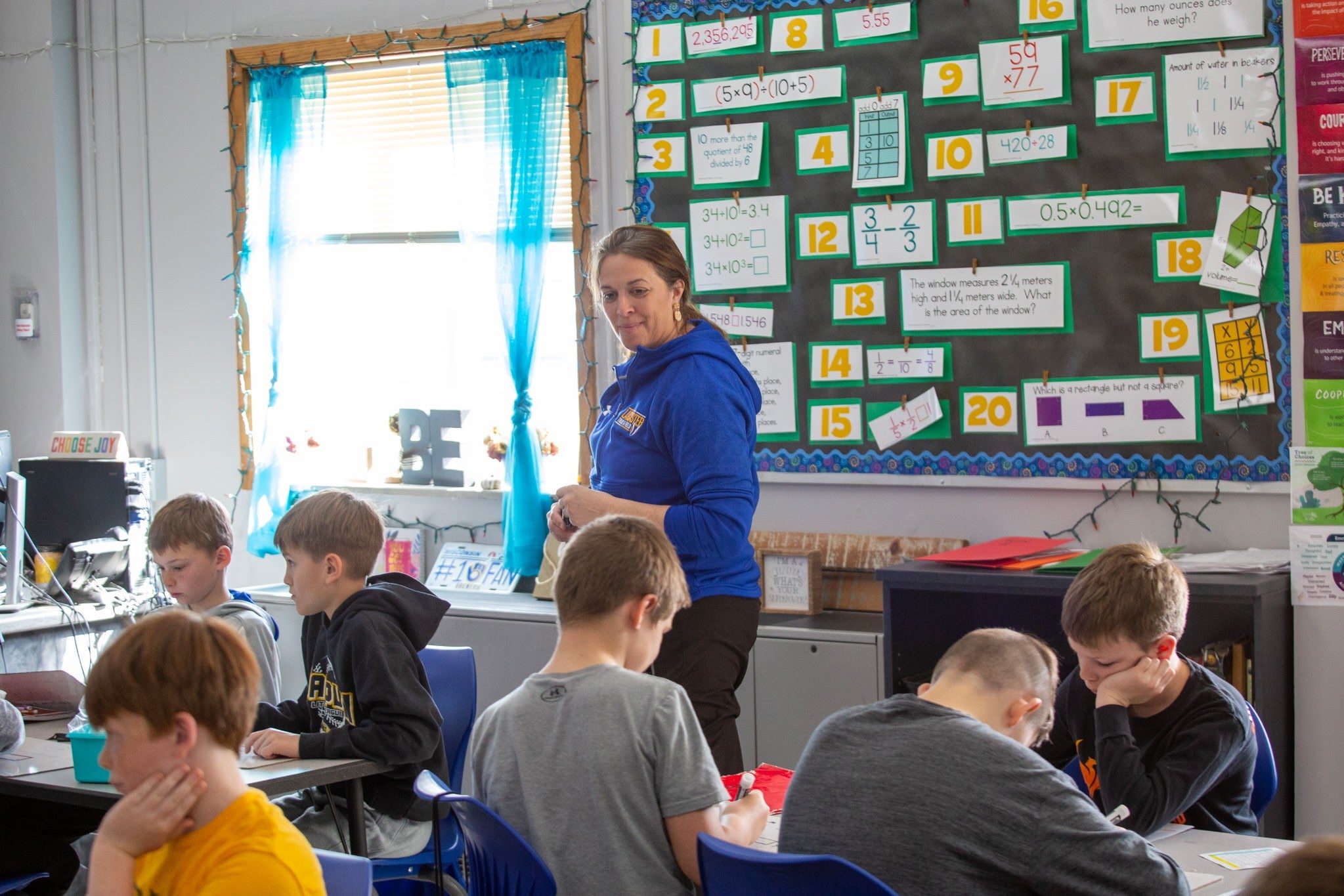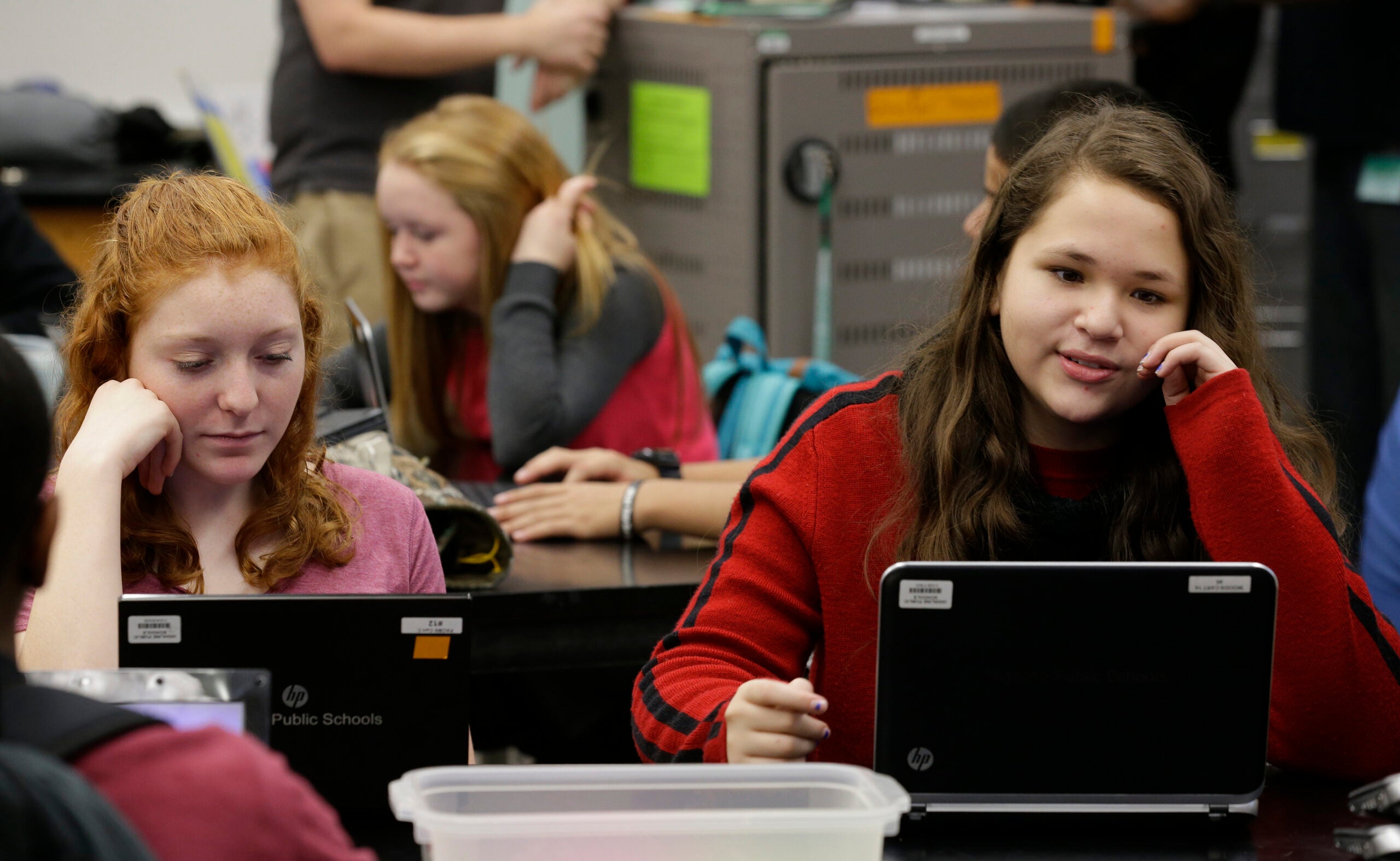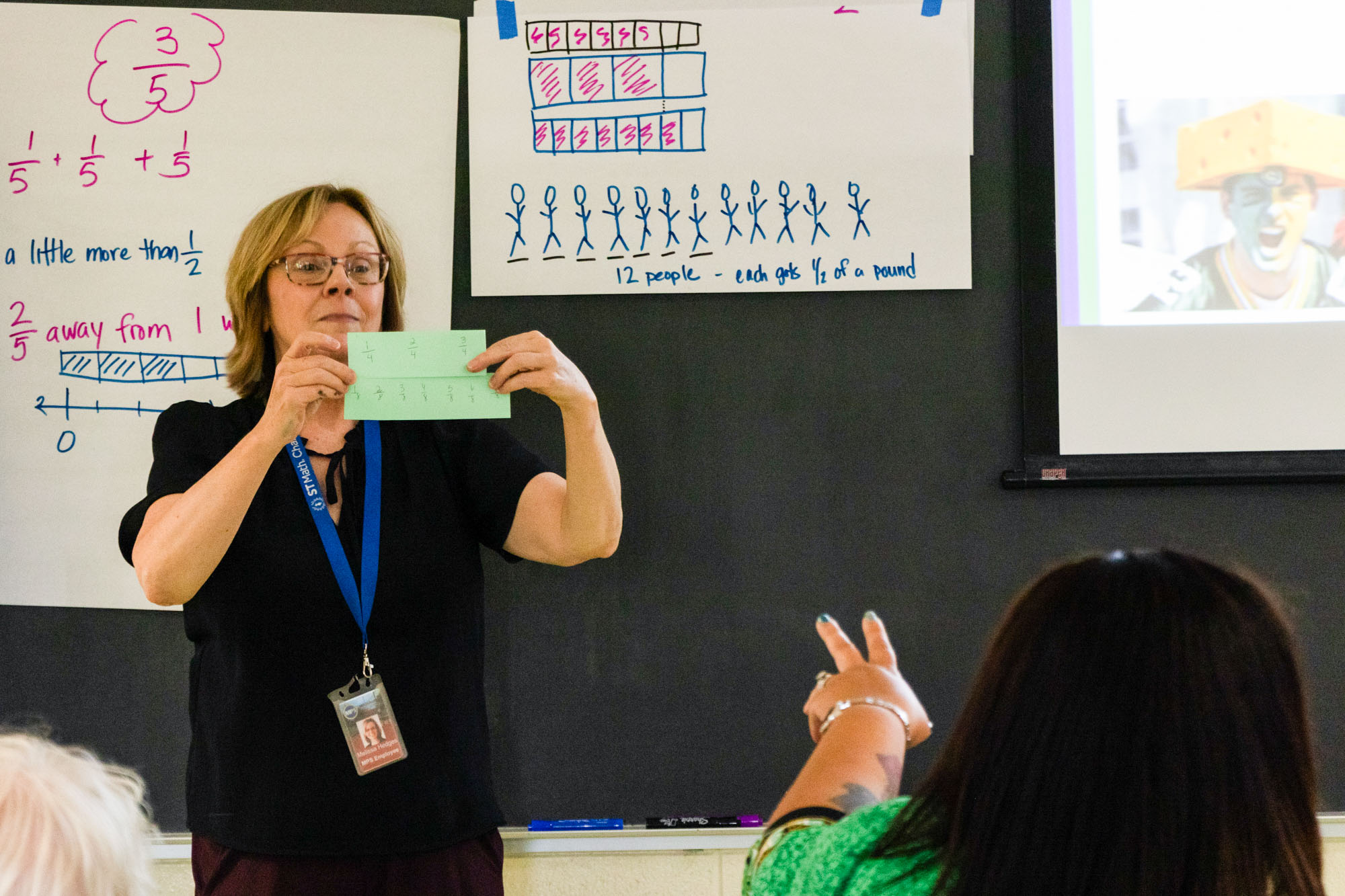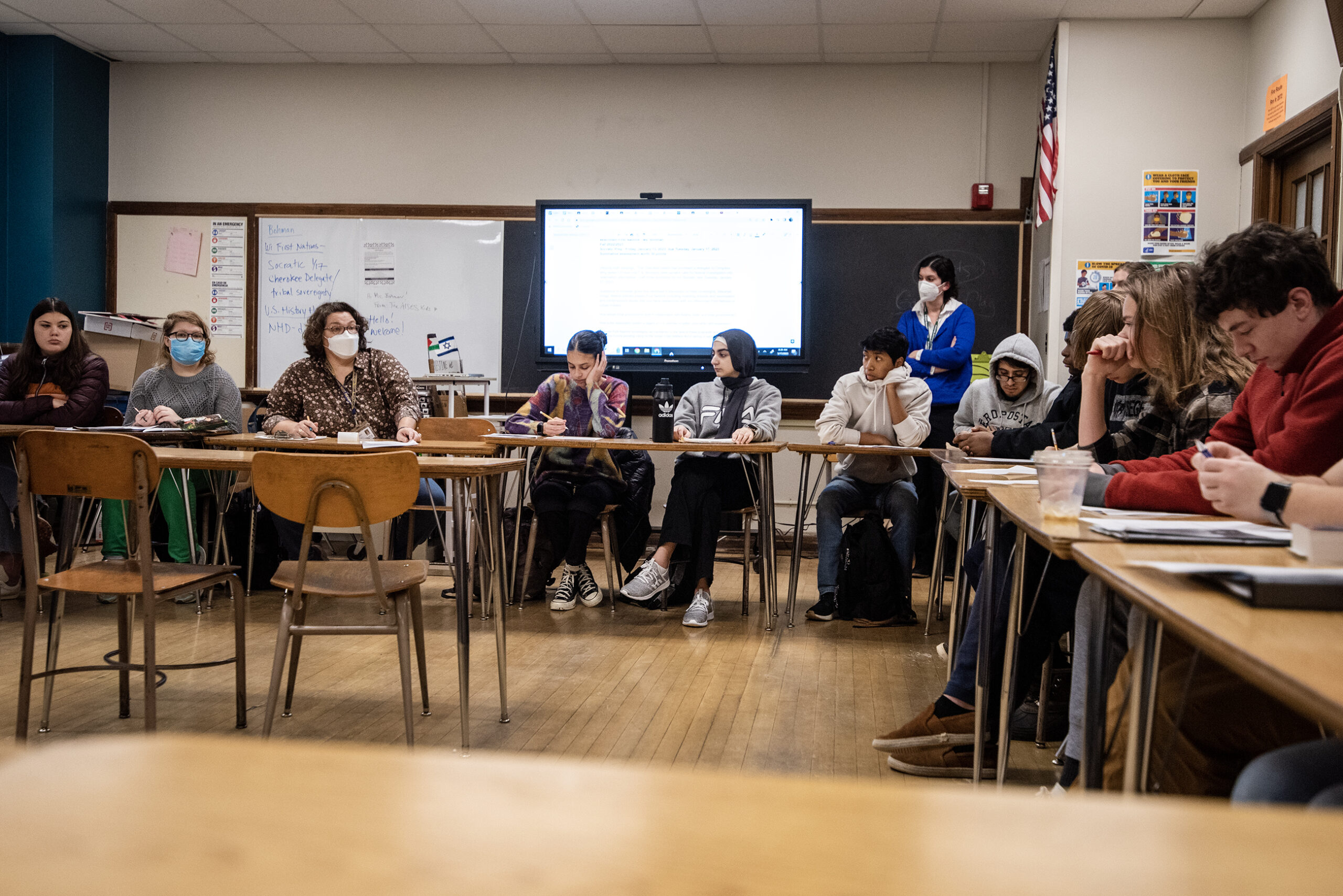With R.E.M.’s “World Leader Pretend,” playing in the background, Chuck Taft began his lesson on the Electoral College with a quick recent history lesson.
“This, by the way, is from the Green album, which I vividly remember came out in November 1988,” Taft says. “Rolling Stone had an ad that said ‘Two things to do: buy R.E.M’s Green and vote.”
The memory and song are lost on Taft’s eighth graders at University School of Milwaukee, but his enthusiasm is not.
Stay informed on the latest news
Sign up for WPR’s email newsletter.
For the next 90 minutes, the students, sitting in seats set up like the Executive Branch of government, are captivated to learn about how the Constitution is related to the upcoming presidential election.
This particular day, where the students learn about the Electoral College, is Taft’s favorite lesson.
“I think social studies now might be the most important subject that we can teach in our schools because it’s all about the real world and the things that are happening on the front page or the front screen,” Taft said.
“I have students in my class right now that are 14. They will vote for president when they are seniors in high school,” Taft continued. “They need to start to understand our political process and really also start to understand how to make really good decisions for themselves and what’s going on in the political world.”
To give young people this base, Taft arms his students with a pocket-sized Constitution.
When they have it with them, they get a Jolly Rancher. And a reminder that before choosing the most powerful person on the planet — the President of the United States — people should understand the Constitution and the Electoral College.
The message seems to be resonating.
“The Constitution is the foundation for our nation today,” said Elise Fathallah, 13. “The way that the presidential candidates want to change it, it’s interesting to think, would the original framers of the Constitution, or would the original Founding Fathers and writers of the Constitution agree? Or would they think, ‘Oh, maybe that’s not such a good idea.’”

For his part, Taft keeps his own political beliefs close to the vest.
“I always say I don’t want you to vote who I vote for, I want you to vote with an educated mind,” Taft said. “I don’t mind if another teacher in another discipline says who they’re voting for, but I really feel because I am the social studies teacher, I want to be as politically neutral as possible.”
University School of Milwaukee is a private pre-kindergarten through 12th grade school in River Hills, north of Milwaukee, with about 1,135 students representing 59 zip codes.
Taft says the school is politically neutral, but not value neutral. As a teacher, Taft feels free to criticize both parties.
That’s a bit of an anomaly for social studies teachers in Wisconsin.
A survey from the Wisconsin Council for the Social Studies found 42 percent of respondents reported that building administration, school boards or community members lodged complaints or put restrictions on lessons related to politics, an election or current events.
Sarah Kopplin, president of the group and a social studies teacher at Shorewood Intermediate School, told WPR’s “Wisconsin Today” that an alarming number of social studies teachers around the state have seen pushback on their lessons about elections and other current events.
Wisconsin does not require high school students to take a civics or government class. But Wisconsin does require all high school students to pass a civics test to graduate.
Back at University School, Taft says he wants students to disagree amicably about political issues so they can see the world through different lenses.
“We can walk away not agreeing with the other person’s opinion, but understanding that the other person can see things through a different lens, as long as it’s based on reason and fact,” Taft said. “We need to talk about the hard history. We need to look at the different perspectives. We need to look at how the past has changed the present, and where it’s taking us for the positive and for the negative.”
Wisconsin Public Radio, © Copyright 2025, Board of Regents of the University of Wisconsin System and Wisconsin Educational Communications Board.
